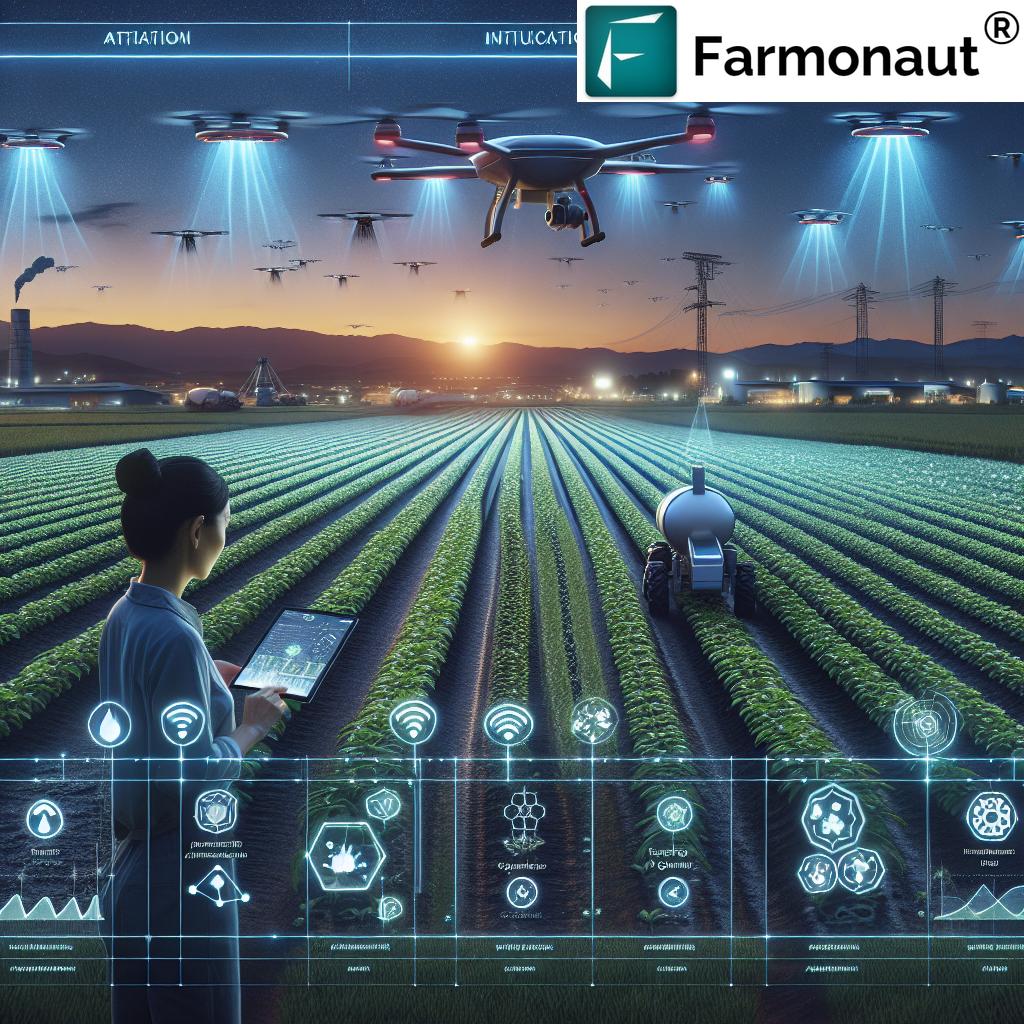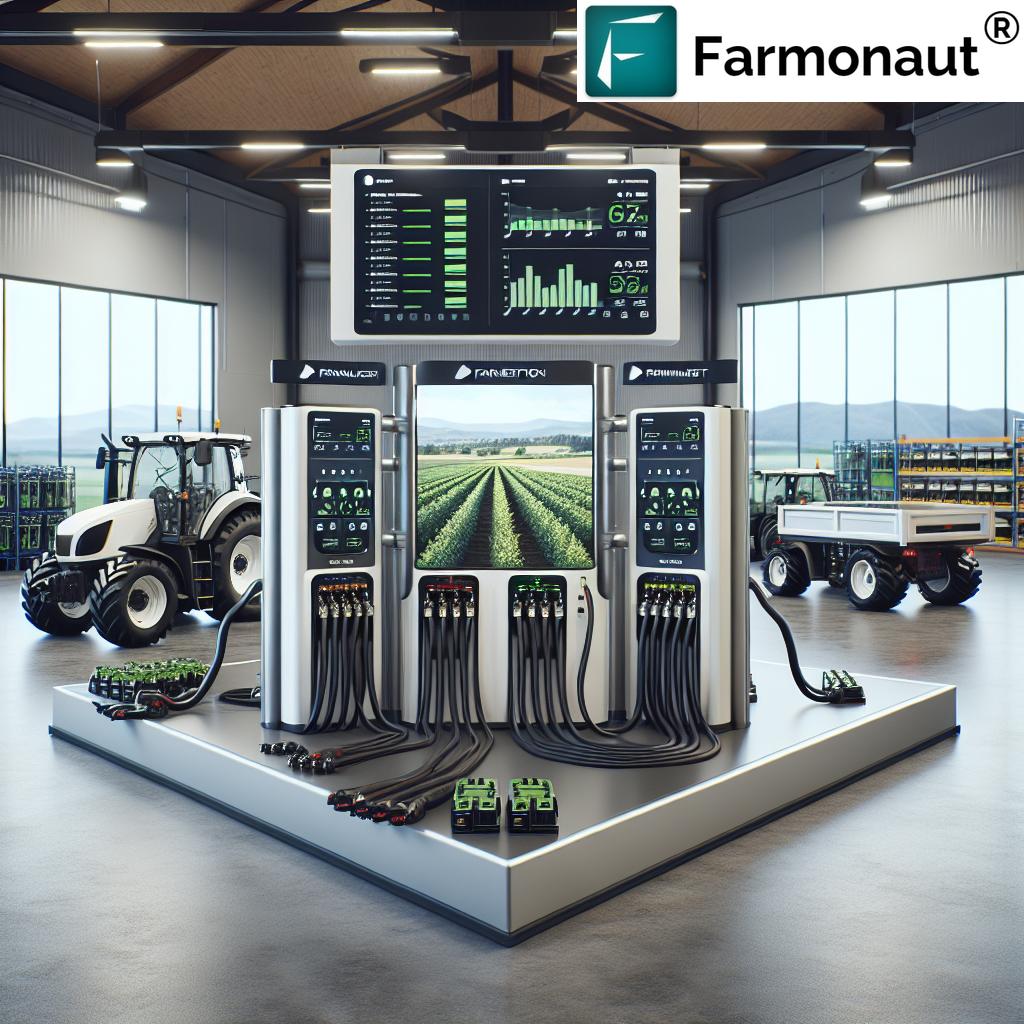Auto Steer for Tractor: 5 Powerful Benefits for 2025 Farming
The Future of Farming: Embracing Auto-Steer Technology in 2025
In the rapidly evolving landscape of agriculture, advanced technology is changing the way modern farms operate. One of the most transformative innovations of recent years is auto steer for tractor systems. As we look toward 2025, these systems are becoming increasingly accessible, affordable, and essential for farmers seeking precision, efficiency, and sustainability in their operations. This comprehensive guide explores the benefits, trends, and innovations shaping tractor auto-steer in the context of tomorrow’s agriculture sector.
What is Auto-Steer for Tractor?
Auto-steer for tractor, commonly called automatic steering, refers to GPS-guided technology that enables tractors to follow precise paths through the field without continuous manual input from the operator. By utilizing satellite navigation (GPS, GLONASS, Galileo) combined with highly sophisticated sensors and control algorithms, these systems can guide tractors along perfectly straight lines or complex patterns with remarkable accuracy.
- Eliminates human error and operator fatigue
- Ensures consistent and optimized field operations
- Enables farmers to achieve higher productivity with less labor input
These auto steer for tractor systems are a crucial stepping stone toward smart farming in 2025—making modern agriculture more efficient, sustainable, and ultimately more profitable.
Auto Steer for Tractor: 5 Powerful Benefits for 2025 Farming
The adoption of auto steer for tractor is ushering in a new era across global agriculture—offering farmers significant improvements in accuracy, efficiency, sustainability, profitability, and farm safety.
1. Unmatched Precision & Efficiency
- Auto steer technology eliminates overlap and gaps during planting, spraying, and harvesting operations.
- By maintaining exact guidance lines, farmers lower input costs—whether for seeds, fertilizers, or pesticides—by using only what’s necessary and reducing waste.
- This precision yields healthier soil conditions, consistent crop yields, and optimized field operations, which directly translates into increased profitability.
2. Significant Labor Savings
- The global agricultural sector faces labor shortages and rising wage costs.
- With auto steer for tractor systems, operators—even inexperienced—can work longer hours with less fatigue.
- Auto steer reduces the level of skill required, enabling farm managers to work more efficiently without proportionally increasing labor requirements, which is critical for large-scale farming.
3. Environmental Sustainability
- Auto-steer reduces unnecessary passes across the field, optimizing resource use and minimizing fuel consumption.
- Reduced overlap in spraying means less chemical runoff, supporting sustainable practices and helping farmers meet expanding environmental regulations.
- Less soil compaction due to efficient path control promotes overall soil health—building resilience for the future of farming.
4. Enhanced Operator Safety & Comfort
- Auto steer systems reduce operator distractions, error, and the physical stress caused by long working hours in the tractor cab.
- Automated navigation improves safety on uneven or challenging terrains, decreasing the risk of accidents due to human negligence or fatigue.
- The operator can focus on overall system monitoring rather than repetitive steering tasks.
5. Scalability and Profitability for All Farm Sizes
- The market in 2025 offers a vast range of auto steer for sale options. Thanks to aftermarket solutions and government support, even “cheap tractor autosteer” is accessible for small and medium farms.
- As auto-steer becomes the norm, food security and farm-scale profitability improve worldwide, empowering more farmers to embrace innovation for modern, sustainable agriculture.
Before vs. After Auto Steer Adoption: Impact Table
Seeing is believing! Here is a comparison table showcasing measurable results from adopting auto steer for tractor systems in modern farming. This demonstrates why these innovations are essential for 2025 farms and beyond.
| Farming Aspect | Estimated Values Before Auto Steer | Estimated Values After Auto Steer |
|---|---|---|
| Field Accuracy | 85% | 98% |
| Fuel Usage (per hectare) | 20 liters | 16 liters |
| Labor Hours (per day, per tractor) | 10 hours | 7 hours |
| Crop Yield (tons/ha) | 4.0 | 4.4 |
| Environmental Impact (relative emissions) | 100% (baseline) | 85% (–15% reduction) |
Technologies Powering Tractor Auto Steer in 2025
The thriving auto steer for tractor market in 2025 is powered by recent breakthroughs in advanced technology and smart system integration. Here’s a closer look:
- Satellite Navigation: Multi-constellation GNSS (GPS, GLONASS, Galileo) delivers the backbone for precise path guidance, enabling real-time steering corrections and sub-centimeter resolution.
- High-Performance Sensors: Gyroscopes, accelerometers, and wheel-angle encoders feed real-time data to the auto-steer control unit for remarkable accuracy and consistency.
- Sophisticated Algorithms & AI: Advanced algorithms process data from multiple sources to optimize pathfinding, turning, and implement control, eliminating human error and further boosting efficiency.
-
Carbon Footprinting & Emission Monitoring:
Integrating auto steer with carbon tracking platforms, like Farmonaut’s carbon footprinting tools, helps farms monitor and reduce their environmental impact—vital for sustainable farming in 2025 and beyond. - IoT & Data Connectivity: Integration with cloud platforms and farm management systems enables insights, history analysis, and remote diagnostics.
- Aftermarket Kits: 2025’s market abounds with quality aftermarket auto steer for sale options—making “cheap tractor autosteer” a real possibility, not just for new tractors but also for existing fleets.
- API and Platform Integrations: With API-based connectivity (Farmonaut API), auto-steer can feed precision data directly into analytics platforms, providing holistic decision support and better resource management.
-
Fleet Management: With Farmonaut Fleet Management, large and mid-size farms can integrate tractor auto steer data to
- Track vehicle health and performance
- Optimize work schedules and logistics
- Reduce fuel use, emissions, and downtime
Auto Steer for Sale: Affordability and Market Trends in 2025
Thanks to rapid innovation and increasing competition, the market for auto steer for tractor has never been more vibrant or affordable. By 2025:
- Aftermarket auto steer kits allow farmers to retrofit existing tractors—making advanced technology available to small and medium farms, not just large enterprises.
- A growing range of auto steer for sale options includes cheap tractor autosteer systems with robust customer support.
- Government incentives and subsidy programs promote adoption, recognizing the importance of precision agriculture technologies in enhancing food security and sustainable practices.
- Technological maturity has driven costs lower, while practitioner demand maintains high standards for reliable, effective tools.
Modern farming practices place auto-steer within reach for most farm operators, drastically accelerating the shift toward smarter, more profitable agriculture.
Auto steer for tractor systems can be purchased and integrated through reputable agricultural technology providers. It is essential to evaluate:
- Compatibility with your tractor model
- Accuracy level and intended use
- User interface and support (ease of use, training, troubleshooting)
- Connectivity with management tools like satellite monitoring or blockchain traceability
Choosing the Right Auto Steer System for Your Tractor
Selecting the best auto steer for tractor system means understanding your farm’s unique requirements. Consider the following:
- Farm Size & Scale: Large farms may require integrated fleet analytics (Farmonaut’s Large Scale Farm Management) for managing multiple auto-steer equipped machines.
- Required Accuracy: Some systems offer sub-meter correction; others deliver centimeter-level precision, perfect for row crops, orchards, and specialty crops.
- Ease of Use & Training: Look for systems with clear interfaces, thorough customer support, and resources for getting started.
- Data Integration: Compatibility with App, Web and Data API platforms (Farmonaut Apps) to track inputs, outputs, and overall field health.
- Aftermarket vs. OEM: Aftermarket options like “cheap tractor autosteer” systems bring advanced functionality to older tractors, while OEM installations provide deep integration and maximum efficiency for new machines.
Farmonaut: Driving Sustainable Agriculture with Satellite Tech
At Farmonaut, we leverage a unique conglomeration of satellite monitoring, AI, and blockchain technology to empower the adoption of smarter farming. Our solutions make precision farming technologies—like auto steer for tractor systems—even more impactful by providing:
- Real-time Satellite Monitoring: Monitor crop health, soil conditions, and field operations to enable data-driven decisions, maximizing the benefits of automatic steering and minimizing wasted inputs.
- AI-Driven Advisory: Our Jeevn AI analyzes multispectral satellite data to deliver field-specific insights—helping to optimize planting, harvesting, spraying, and irrigation schedules with pinpoint accuracy.
- Crop Loan & Insurance Verification: Satellite-based verification supports access to financing and risk management by offering up-to-date operational snapshots validated remotely.
- Blockchain Traceability: Ensure secure, transparent supply chains in agriculture by verifying every stage of production right from field to food processor.
- Environmental Impact Monitoring: Our carbon monitoring platform supports farms to track emissions, comply with regulations, and promote sustainable farming as part of a holistic technology stack.
All of these tools are available through:
Auto Steer and the Future of Farming
The integration of auto steer for tractor is no longer just an upgrade—it is rapidly becoming an essential pillar of modern agriculture. Here’s what the future holds as this technology becomes a mainstream farming tool:
- Universal Access: Continued decreases in cost and increases in customer support will ensure auto steer for sale is accessible and affordable at every scale—empowering even the smallest farmers.
- Greater Food Security: More reliable operations, lower input costs, and improved yields will help stabilize food supplies around the world.
- Data-Driven Decision Making: Integrated tools, from precision planting to carbon emission monitoring, will help farmers adapt strategies based on real, historic, and predictive data.
- Regulatory Compliance: Technology-driven sustainability is critical to meeting future environmental, safety, and traceability standards.
- Enhanced Profitability: The overall reduction in labor, resources, and operational risks positions auto-steer technology at the core of profitable 2025 farming—for smallholders and mega-farms alike.
Ready to bring your farm up to speed with the future? Embrace auto steer for tractor systems alongside the satellite-driven solutions available through our Farmonaut platform.
Frequently Asked Questions (FAQ): Auto Steer for Tractor & Smart Farming in 2025
Q1: What is auto steer for tractor?
Auto steer for tractor refers to a precision technology that uses satellite navigation, sophisticated sensors, and control algorithms to automatically guide tractors along precise lines in the field without continuous manual input, greatly improving accuracy and reducing errors.
Q2: Is auto steer for tractor affordable for small and medium farms?
Yes. In 2025, thanks to technological maturity and an active aftermarket, there are many auto steer for sale solutions available at accessible price points—even cheap tractor autosteer kits—which make adoption feasible for most farm sizes.
Q3: How does auto steer improve sustainability?
By minimizing overlap and gaps during planting/spraying, auto steer systems reduce waste of seeds, fertilizers, and pesticides, lower fuel use, and decrease field compaction—all supporting environmental stewardship and sustainable farming.
Q4: Can I retrofit my existing tractor?
Yes. Aftermarket auto steer kits are available for a wide variety of tractor models—making it easy to upgrade to auto-steer, regardless of the age or brand of your machines.
Q5: How do Farmonaut’s solutions complement auto steer for tractor?
Our satellite, AI, and blockchain platforms provide insights on field health, crop performance, soil conditions, fleet usage, and carbon emissions, further amplifying the benefits of your auto-steer equipped tractors while supporting cost-saving, sustainability, and data-driven decision-making.
Q6: Where can I access Farmonaut’s smart agriculture tools?
You can get started with our web app, Android App, iOS app, or connect with our data via API (API Docs).
Q7: What other innovations help modern farmers stay competitive in 2025?
In addition to auto steer for tractor technology, integrating blockchain-based traceability, carbon footprint monitoring, and fleet/resource management tools are crucial steps for future-ready, sustainable, and profitable agricultural operations.
Farmonaut Subscriptions
Maximize your efficiency and sustainability journey. Access Farmonaut’s satellite-driven agri solutions and upgrade your digital capabilities for 2025 and beyond.
Conclusion: Embracing Precision Farming for a Resilient Future
As agricultural operations across the globe continue to modernize, the adoption of auto steer for tractor technology stands as a cornerstone for efficiency, sustainability, and profitability in 2025 farming. From labor savings to environmental impact reduction, from increased accuracy to enhanced safety—auto-steer lays the foundation for the next era of data-driven and intelligent agriculture.
Our mission at Farmonaut is to empower farms of all sizes with actionable insights, advanced monitoring, blockchain-based traceability, and powerful management tools—enabling you to make proactive, smart choices for a sustainable future.
The time to embrace innovation is now—equip your farm with the technologies that secure your success for 2025 and beyond.










